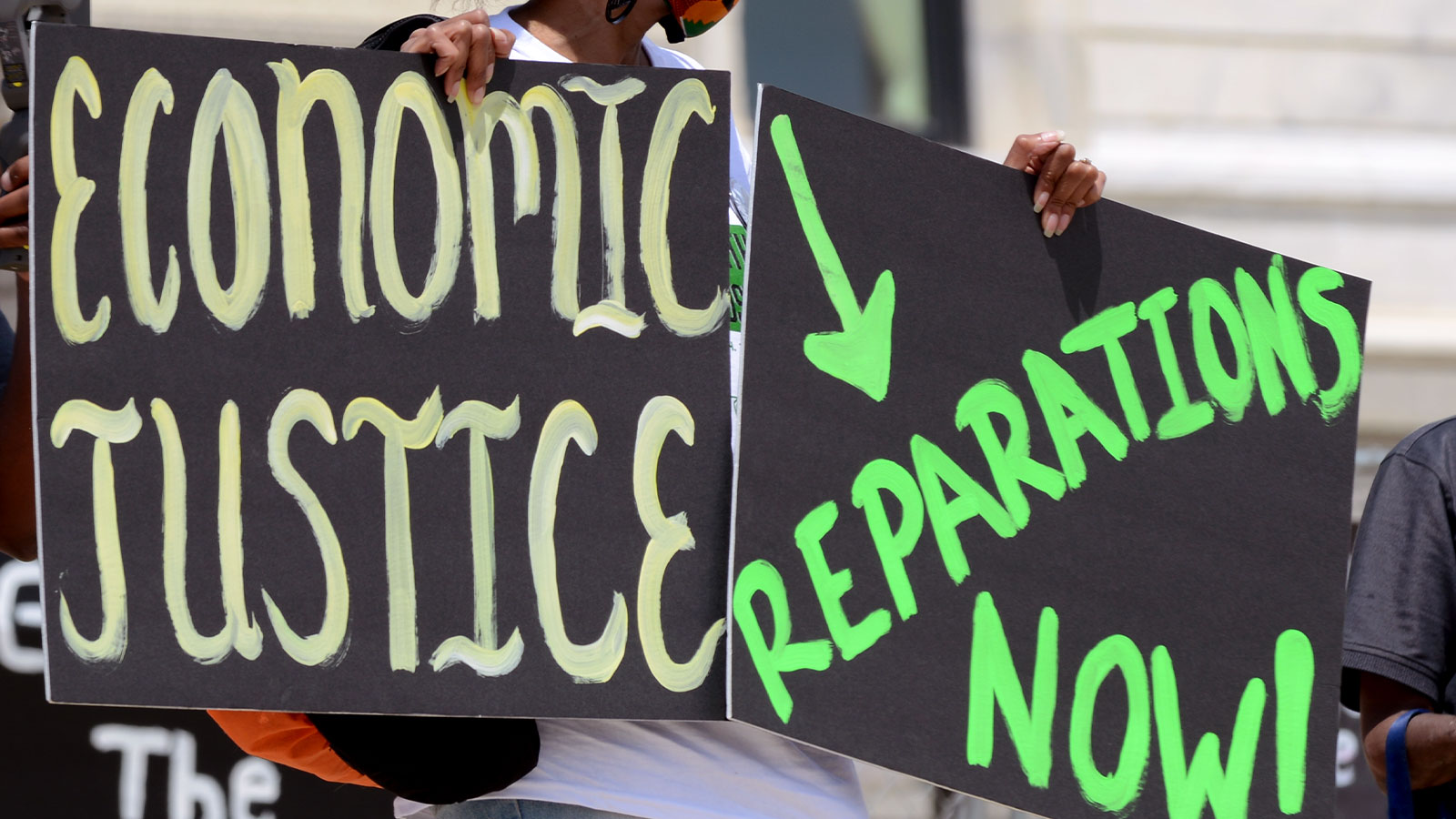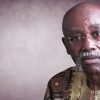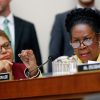Can ”reparationist“ be a distinct identity, akin to feminist or abolitionist, a label worn with pride by progressives who believe in reparative compensation for Black people?
The term “reparationist” currently lacks an official dictionary definition, but as the global movement for reparations gains momentum, this may soon change, offering remedies for the enduring harms of slavery and anti-Black discrimination but also allowing individuals to identify themselves with this centuries-old movement.
Can reparationist be a distinct identity, akin to feminist or abolitionist, a label worn with pride by progressive individuals showcasing their belief in reparative compensation for Black people? It turns out that, although the reparationist identity has not entered mainstream consciousness, people active in the movement have been calling themselves reparationists for years.
For Jumoke Ifetayo, the path to becoming a reparationist started at an early age. Influenced by his mother, Ifetayo began wearing traditional African clothes to school in Atlanta to reclaim a sense of his cultural heritage. “My mother started to wear traditional African clothing in the ’70s, and when I graduated from 7th grade, we had an honors ceremony, and my high school counselor asked me to wear a suit, and I said, ‘yes ma’am’ and showed [up in] a four-piece African suit,” Ifetayo says. Since then, he has continued to don traditional African clothing and served as a member of the National Coalition for Blacks for Reparations in America (N’COBRA), one of the oldest national organizations dedicated to securing reparations for Black people in the United States.
In research about traits of pluralists, the Pop Culture Collaborative (PCC), a philanthropic intermediary working to transform the narrative landscape in the U.S., conducted research about traits of pluralists that suggests that people who identified as pluralists shared a set of core life events. A pluralist, in the context of political and social theory, is someone who believes that power should be distributed across a diverse group of people. According to Bridgit Antoinette Evans, the organization’s CEO, this research helped PCC see that “a pluralist identity formation may have a journey that starts early in life.” Evans points out that, as people move through these core life events, behavior or identity sets itself.
The path to becoming a reparationist may also similarly be sparked by a meaningful event that leads people down a path toward working to repair and liberate Black Americans in response to the harms of the transatlantic slave trade and its stain on society.
The centennial of the Tulsa Race Massacre wasn’t the first moment Dreisen Heath identified as a reparationist. Still, for Heath, who led reparations policy efforts at Human Rights Watch for the past five years, that anniversary was her spark, and crystallized for her the enormity of the reparations movement.
“Working for an organization like Human Rights Watch where international law is the organization’s mandate and the right to reparations is clearly outlined, it was a no-brainer to build Human Rights Watch’s U.S. domestic reparations research and advocacy program,” Heath says. Still, she worries that, as more states start to consider reparations policies and as the movement continues to enter mainstream policy conversations, there will be both promises and pitfalls to the popularization of what it means to be a “reparationist.”
Organizing People Into Liberatory Social Identities as a Strategy
Identity has long played a role in activist strategies and has become more prominent in modern-day racial and social justice spaces. Social identity theory was first developed in the 1970s by two psychologists named Henri Tajfel and John Turner, seeking to explore how individuals categorize themselves into social groups. Their theory posited that people derive part of their identity from their membership in social groups (such as nationality, ethnicity, gender, religion, etc.) and that this categorization influences social perception and behavior.
A key to understanding the sway of social identities, according to University of California, Los Angeles political science professor Lynn Vavreck, is “the ability to distinguish members of one group from another through a shortcut based on something like team colors, languages or accents, race or geography.” Today, when someone says they are an abolitionist, a Marxist, or a liberal, it is generally understood what they stand for.
The Combahee River Collective, a group of Black and queer feminist scholars and activists, first coined the term “identity politics” in 1977. The term captured the importance of addressing the unique forms of oppression faced by individuals based on their various identities, such as race, gender, or class. The group called for a political alignment recognizing the experiences and histories of marginalized groups while emphasizing the interconnected nature of oppressive systems.
Scholar and civil rights activist Kimberlé Crenshaw built on this definition, coining the term “intersectional,” which she articulated as a framework recognizing that individuals have multiple social identities that intersect in complex ways and that there is a need to consider the overlapping marginalized identities of different groups.
The landscape of social movements continually evolves, giving rise to various social movement identities. These identities, often fluid and shaped by active participation, can include modern-day abolitionists, for example, who advocate for an overhaul of the criminal legal system, or feminists who challenge patriarchy and champion gender justice. While these labels help understand an individual or organization’s particular role in the social justice ecosystem, they can also feel overly rigid. These movements and identities are multifaceted, and it is through the interconnection of these identities that some activists believe societal transformation can happen.
Vanessa Thomas, the program manager at the Black Feminist Fund, identifies as a “Black feminist” because “it is specifically about bringing everything from the margins to the center and not the superficial, self-care, girl-boss T-shirts, smash-that-glass-ceiling type of feminism, but very much about bringing in everyone.” For Thomas, this sets her apart from the type of feminism that some white women may embody; it means that being a Black feminist is “not simply a part of my 9-5,” but that it plays a role in how she shows up in her relationships, conversations, and politics.
This infusion of Black feminism into Thomas’ daily life to the point where it shapes her worldview is what Pop Culture Collaborative calls a “immersion in a narrative ocean,” a coordinated ecosystem of “desired behaviors, new mental models, narrative archetypes, and specific story experiences that together will work to shift how people think, feel, and behave in the world.” PCC recently updated its theory of narrative change to be more oriented toward social identity, stating that “the North Star of narrative systems work is to cultivate social identity.”
This updated theory of change is one of the clearest and most specific articulations on how to build power across a mass of people, and as PCC articulates it, “create[s] the conditions for millions of people to experiment with, and ultimately, behave in accordance with new social identities.”
Getting deeper than just “shifting the narrative,” a term that has become increasingly popular in left-of-center philanthropic spaces, was important for PCC’s Evans. “From a strategic standpoint, it’s hard to quantify what shifting the narrative means, and it tends to draw people toward communications as a strategy by which to get to that end goal,” Evans notes. Aisha Shillingford, who is the artistic director for Intelligent Mischief, a creative studio focused on shifting culture, noted in a Stanford Social Innovation Review piece that “building the power to shape narratives is only one component of building cultural power.”
There is a growing field being cultivated in large part by organizations such as PCC, Center for Cultural Power, and Harness that is connecting the dots between cultural and policy change. “We started moving deeper into this concept of narrative oceans and narrative immersion in ideas, stories, relationships, and behavior norms as the context shaping how we move through the world,” Evans says.
Over the past few years, PCC has awarded millions of dollars to organizations such as Caring Across Generations to advance pop culture narratives about caregivers and to the Center for Cultural Power to accelerate the power of immigrants, refugees, disabled, and trans people in emerging television. While these identity-centered strategies continue to be shaped by strategists and activists, academic theorists and political scientists are more wary of their effectiveness.
Potential Pitfalls
The use of identity has gotten its fair share of critiques from scholars and activists on the left and right of the political spectrum. In an essay in The Atlantic adapted from his book The Identity Trap: A Story of Ideas and Power in Our Time, political scientist Yascha Mounk notes that the likely outcome of an emphasis on identity politics is “a society that places an unremitting emphasis on our differences,” which he thinks could lead to the pitting of identity groups against one another “in a zero-sum battle for resources and recognition.”
Similarly critical of identity politics, Olúfẹ́mi O. Táíwò, philosopher and assistant professor at Georgetown University, argues in his book, Elite Capture, that in the past few decades, we have failed to build alliances across our identities and instead chosen to “close ranks—especially on social media—around ever-narrower conceptions of group interests.”
But activists, particularly those who engage in conversations with everyday people in their communities, see the use of identity, particularly liberatory identities, as a unifying force as long as it seeks to explore the depth and principles of the identity. “If a narrative ocean changes but the change within individuals is not durable, it’s a whole lot of work for a very fleeting impact,” Evans points out.
In other words, to effectively achieve the progressive transformation activists desire, it’s not sufficient to merely increase the number of individuals who identify as anti-racists, abolitionists, feminists, or reparationists. What’s crucial, according to activists such as Richie Reseda, CEO of Question Culture, a worker-owned production and artist management group, is fostering a deeper, more impactful change that is actively integrated into the fabric of our culture. Transformation, according to Reseda, rests on cultivating a daily practice of “building more healing and accountability into the world.” Reseda identifies as an abolitionist, but his thoughts converge with the spirit of reparations through the idea of repairing and healing past harms.
The use of identity can also be used as a means for maintaining and consolidating power among dominant groups, instead of evenly distributing it. For example, white supremacist identity politics was on full display during Donald Trump’s campaign and presidency. In 2016, political scientist David Edward Tabachnick wrote in The Hill that while “Trumpism” is obviously “linked to the person Donald Trump, but its roots run much deeper, intertwining contemporary and traditional political trends in such a way that it makes it both uniquely American and of the 21st century, distinct from the European Fascism of the last century.”
Evans concurs, saying, “The pro-authoritarian movement’s strategy is entirely about identity formation—they understand the identity of the patriot, and they understand the way that identity creates norms in people.” The weaponization of social justice identity politics is “purely a tactic that is being used to deconstruct cultural innovation rooted in BIPOC communities.”
As the nation braces for the potential recurrence of a Trump versus Biden election in 2024, the future of progressive identity politics hangs in the balance. Will these political dynamics further divide or unite the populace? How will the reparations movement and the thousands of reparationists who have stepped into this liberatory identity since 2020 fare? Amid the uncertainty, the question of how individuals align themselves in these politically charged times becomes increasingly pertinent.
Social Identity and Belonging
Researchers have found that when an individual feels a stronger sense of belonging to a community or social group, they report higher overall well-being, reduced stress, and improved mental health. To white Americans in particular, reparations feel divisive, a suite of policies that would do the exact opposite of fostering inclusion and belonging, especially regarding white people.
Over the past year, a cohort of activists who participated in the Reparations Narrative Lab, a program of Liberation Ventures, whose mission is to accelerate the Black-led movement for racial repair, unpacked this and a suite of other narratives that stand in the way of further advancing the reparations conversation. (Full disclosure: the author of this piece worked as director of narrative change at Liberation Ventures while writing this story.)
The Lab centered its efforts on enhancing the movement’s influence and capacity within Black communities, with the ultimate goal of achieving widespread support for reparations across all racial groups. Recognizing this, activists across the movement also acknowledged the critical part white allies play, especially in mobilizing and educating members of their white communities about the importance and necessity of reparations.
Lotte Lieb Dula, a white woman based in Colorado and the founder of Reparations4Slavery, says that her most prominent social identity today is that of a reparationist. Her journey began after her mother’s passing when she uncovered that her family built its wealth on the enslavement of human beings for more than 200 years. As a child, she was shielded from this family history, alongside the revelation that her mother was a member of the United Daughters of the Confederacy. Today, Dula says she has committed herself to “un-whitewash this history and encourage other white people to find their own pieces to the puzzle and then speak publicly about it.”
This raises the question of whether Black reparationists should expend effort toward helping white people and other non-Black individuals belong in the reparations movement or if that is the work of those communities themselves. According to David Ragland, co-founder and co-executive director of The Truth Telling Project, there is a difference between what it looks like to show up as a Black reparationist versus a non-Black reparationist. “We walk through the world differently and with different levels of threat depending on where we are,” says Ragland.
According to Ragland, a power analysis and a deep understanding of how we’ve arrived at this point of racial inequality and racial hierarchy will be crucial in the upcoming years to grow the movement for reparations. He surmises that true liberation lies in living our lives through these frameworks.
Conversations with modern-day reparations activists across the country reveal that a central part of this identity is based on understanding the economic, social, political, cultural, and spiritual nature of reparations. After obtaining this understanding, reparations activists stress that only when one commits to the work of transformation can one truly start the work of being a reparationist.
Creating lasting and durable change to realize reparations will rely on “situating social identity formation as a north star of our strategies,” according to Evans and as per the new vision of PCC. “That is where sustainability lies.” Just as people identifying as “abolitionists” helped abolish slavery, it will take a critical mass of “reparationists” to achieve reparations.
This story was funded by a grant from Decolonizing Wealth Project, as part of the YES! series “Realizing Reparations.” While reporting and production of the series was funded by this grant, YES! maintained full editorial control of the content published herein. Read the YES! editorial independence policy here.
Source: YES!
Featured image:















